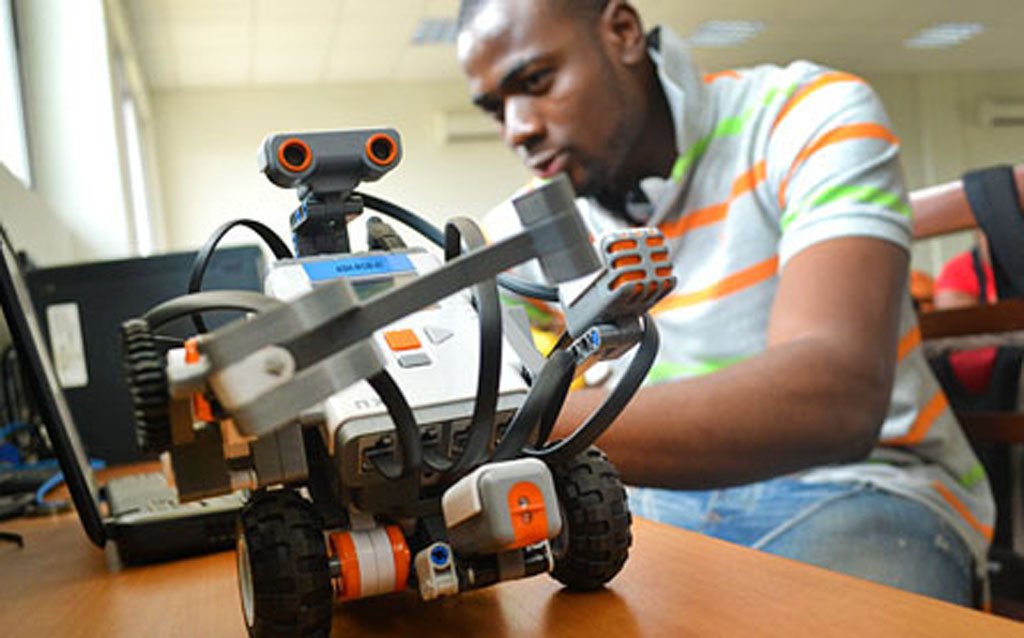Young entrepreneurs in Africa, are the recipients of increasing social investments which are giving them new opportunities to commercialize innovative ideas, job creation and independence. Africa is a changing continent. It has made progress over the last 10 years in areas ranging from economic political and social growth. Despite these successes few African countries can lay claim to truly transforming their economies. The reality is African societies and economies need to be driven by creativity and innovation that we see mirrored in Western countries. Everyone knows creativity innovation and entrepreneurship are the vital ingredients for socio-economic transformation.
There are encouraging signs that these needs are being recognized. Last week, the recently concluded Africa Innovation Summit (AIS) was an example of a much needed catalyst event. It is an integral part of a much broader effort to build a platform for promoting innovation in Africa. The Summit laid the foundation for an ongoing multi stakeholder dialogue on innovation in Africa. All stakeholders, including policy makers, entrepreneurs, innovators, researchers, academics, and investors engaged in a collaborative effort to undertake strategic assessment, seek robust solutions and engage key actors to build more propitious environments for innovation on the continent.
The Western corporate world is doing their part as well. Last Friday, IBM announced further expansion of its operations across Africa. This move will see the opening of two new IBM innovation centres in Lagos, Nigeria and Casablanca, Morocco. Big Blue hopes these new centers will spur local growth and fuel a much-needed ecosystem of development and entrepreneurship in the areas of cloud computing, analytics and of course, big data. IBM is also working to transform systems across Africa – specifically banking, telecommunications and government – and is working with clients and partners to put in place the systems, infrastructures and processes that underpin the continent’s economic and social transformation.
These developments come at a time when incubators and accelerators such as the iHub which is an open Space for tech geeks, investors, startups and hackers in Nairobi are springing up all over Africa and are providing opportunities for developers to launch commercially viable products. Jacqueline Chimhanzi in a blog post examining ‘what does the private sector in Africa need to unlock its innovative potential’, suggests the African private sector needs to step up more and underlines the importance of new technology skills:
Just 5 years ago some of these developments seemed far-fetched and unfathomable. (Such as Mpesa) Indeed, it is only 12 years ago that Africa was labelled the “hopeless continent”. We didn’t know then what we didn’t know and, in fact, we still don’t know what we don’t know. But, thankfully, there is an emerging class of young people who are tech-savvy, laden with ideas and pushing the frontiers of knowledge and ICT.
Impressive developments are taking place that are not necessarily covered by mainstream media. Communities of young bloggers, coders and programmers are emerging and collaborating in Nairobi, Lagos and Accra.
What we are seeing now are various organizations around Africa, looking for ways to improve their analytics skills and more accurately tap into the data being produced by mobile devices and tablets – and, better anticipate the needs of their customers by delivering improved services. Africa has taken global central attention, as it is viewed as the last big emerging market of the current economic era… A good position to be in. Locally grown innovation is key and critical to the continent’s future development and is dependent on close collaboration between local experts and gobal innovation leaders.
While the IBM innovation centers will certainly ensure that regional IT innovation will grow and help start-ups and other new businesses to use the latest IT technology to get to market faster, Jacqueline Chimhanzi makes an important point that the local innovation and creativity ecosystem need to bear in mind at all times:
“The dilemma for me is that there is talent in Africa brimming with solutions but the money is not very forthcoming. We desperately need more Africans funding African solutions to African problems if Africa is to claim the 21st Century“.
Image credit via .tribecadisruptiveinnovationawards/IBM

Hayden Richards is Contributor of IntelligentHQ. He specialises in finance, trading, investment, and technology, with expertise in both buy-side, sell-side. Contributing and advising various global corporations, Hayden is a thought leader, researching on global regulatory subjects, digital, social media strategies and new trends for Businesses, Capital Markets and Financial Services.
Aside from the articles, interviews and content he writes for IntelligentHQ, Hayden is also a content curator for capital markets, analytic platforms and business industry emerging trends. An avid new media explorer Hayden is driven by a passion for business development, innovation, social business, Tech Trading, payments and eCommerce. A native Trinidadian, Hayden is also a veteran, having served with the Royal Air Force Reserves for the past 10 years.
Follow Hayden on Twitter @HaydenARichards, linkedin.com/haydenhrichards and http://www.scoop.it/u/hayden-richards












